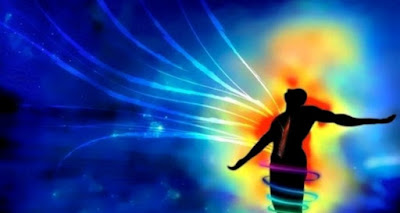Christians faced outward and joined hands in a circle to protect a Muslim group of protesters as they prayed in Egypt.**
Isaiah 9:2-7
The people who walked in darkness
have seen a great light;
those who lived in a land of deep darkness--
on them light has shined.
You have multiplied the nation,
you have increased its joy;
they rejoice before you
as with joy at the harvest,
as people exult when dividing plunder.
For the yoke of their burden,
and the bar across their shoulders,
the rod of their oppressor,
you have broken as on the day of Midian.
For all the boots of the tramping warriors
and all the garments rolled in blood
shall be burned as fuel for the fire.
For a child has been born for us,
a son given to us;
authority rests upon his shoulders;
and he is named
Wonderful Counselor, Mighty God,
Everlasting Father, Prince of Peace.
His authority shall grow continually,
and there shall be endless peace
for the throne of David and his kingdom.
He will establish and uphold it
with justice and with righteousness
from this time onward and forevermore.
The zeal of the LORD of hosts will do this.
Reflection Thursday, December 24th is a doubly feasted day this year. It is the day appointed to celebrate the birth of two venerable men who are responsible for giving rise to two of the worlds great religions. This day is doubly different because without Jesus of Nazareth’s birth there is no Christianity and without the Prophet Muhammad’s birth there is no Islam.
For both Jesus and Muhammad the celebration of their birth is more than commemorating or remembering an historical event that happened two thousand or fifteen hundred years ago, respectively. The celebration of both of their births is also about participating in the divine realization of Emmanuel, God with us. The Qur'an, the Holy Book of Islam, the words of which were given to the prophet Muhammad through the angel Gabriel, puts it this way. "And know that among you/within you is the Messenger of God" (49:7)
Both Christianity and Islam locate God with humanity. This is the gift of the births of Jesus and Muhammad. Both persons are the embodiment of God’s hidden and mysterious Word. And, in both cases, the Word God did not stop with them. The Word, God, is always being reborn in the hearts of believers. As Christians we understand the Spirit of the risen Christ enables us to participate in the eternally living Word, God with us. Which is why at Christmas we not only remember and celebrate the birth of the child Jesus in Bethlehem but we also receive the mysterious gift of new light and life reborn in our hearts. Muslims, especially Sufis who carry the mystical tradition of Islam, understand Muhammad as the eternally living soul of the faith. Faithful Muslim believers carry the divine spark, the living soul of Muhammad, which is eternally reborn in their hearts.
Both Muhammad and Jesus are the revelation of God’s embodied Word breathed into creation. Both Muhammad and Jesus bring us the good news of Emmanuel, God with us. That which we are seeking we already are, which means, it is up to us, all of us, to continue to embody the Word, God with us.
But the words of the ancient prophet Isaiah ring all too true today. We are people walking in darkness. Our burden is heavy. Many of our sisters and brothers are oppressed. The boots of warriors are trampling the lands and people are rolling in blood. We have forgotten the mystery of “this holy night.” We have forgotten “the brightness of the true light.” We need desperately to sing a new song, “a new song for all the whole earth.” God is with us. God is with ALL of us.
The question is, how are we going to sing a new song of God with us to the sixty million people across the globe (that is one in every one hundred and twenty two people in the world today) who have been forced from their homes by violence and are either internally displaced or refugees in a foreign country? How are we going to sing a new song of God with us to the 2.75 million Muslim adults and children* who live in the United States and increasingly are subjected to hate crimes, hateful violence that have tripled since the tragedies in Paris and San Bernadino fueled by posters spread by the Klu Klux Klan that read, “Help us finish the spread of Islam in our country”? How are we going to sing a new song of God with us that puts flesh on the bones of our faith and dignifies all people? How are we going to sing a new song of God with us that wraps our Muslim sisters and brothers in the light of Christ and the message of Muhammad that we, God’s people, all of us, are the messengers of God? What message do we want to put into our world? Peace, justice and righteousness or hatred, corruption and fear?
O God, you have caused this holy night to shine with the brightness of the true Light: Grant that we, who have known the mystery of that Light on earth, may be beacons of that light for all of your children, young and old of every race, religion and nation and especially our Muslim sisters and brothers whose prophet Muhammad shares his birthday with our Christ, Jesus, who lives and reigns with You and the Holy Spirit, always and everywhere. One God. Amen.
*http://www.pewresearch.org/fact-tank/2015/12/07/muslims-and-islam-key-findings-in-the-u-s-and-around-the-world/
If you found this post to be meaningful please share by clicking on icons below. Thank you and Merry Christmas!









